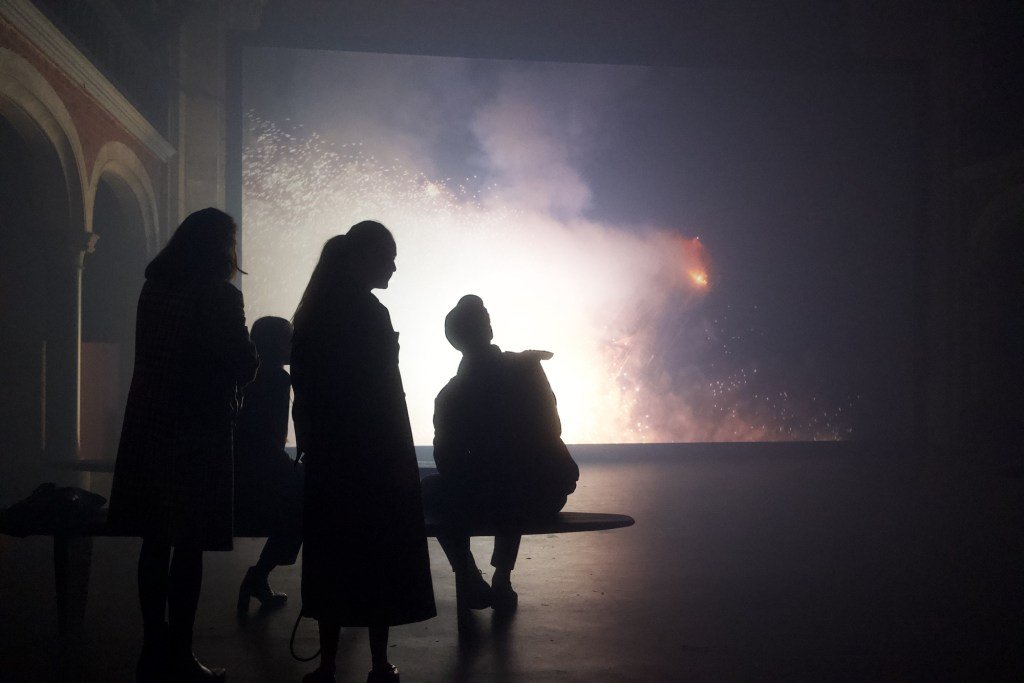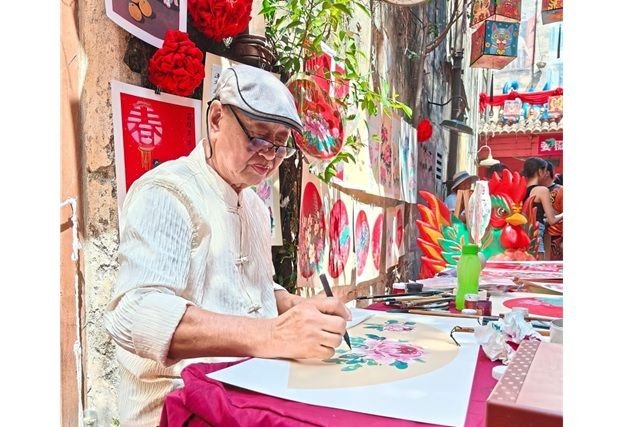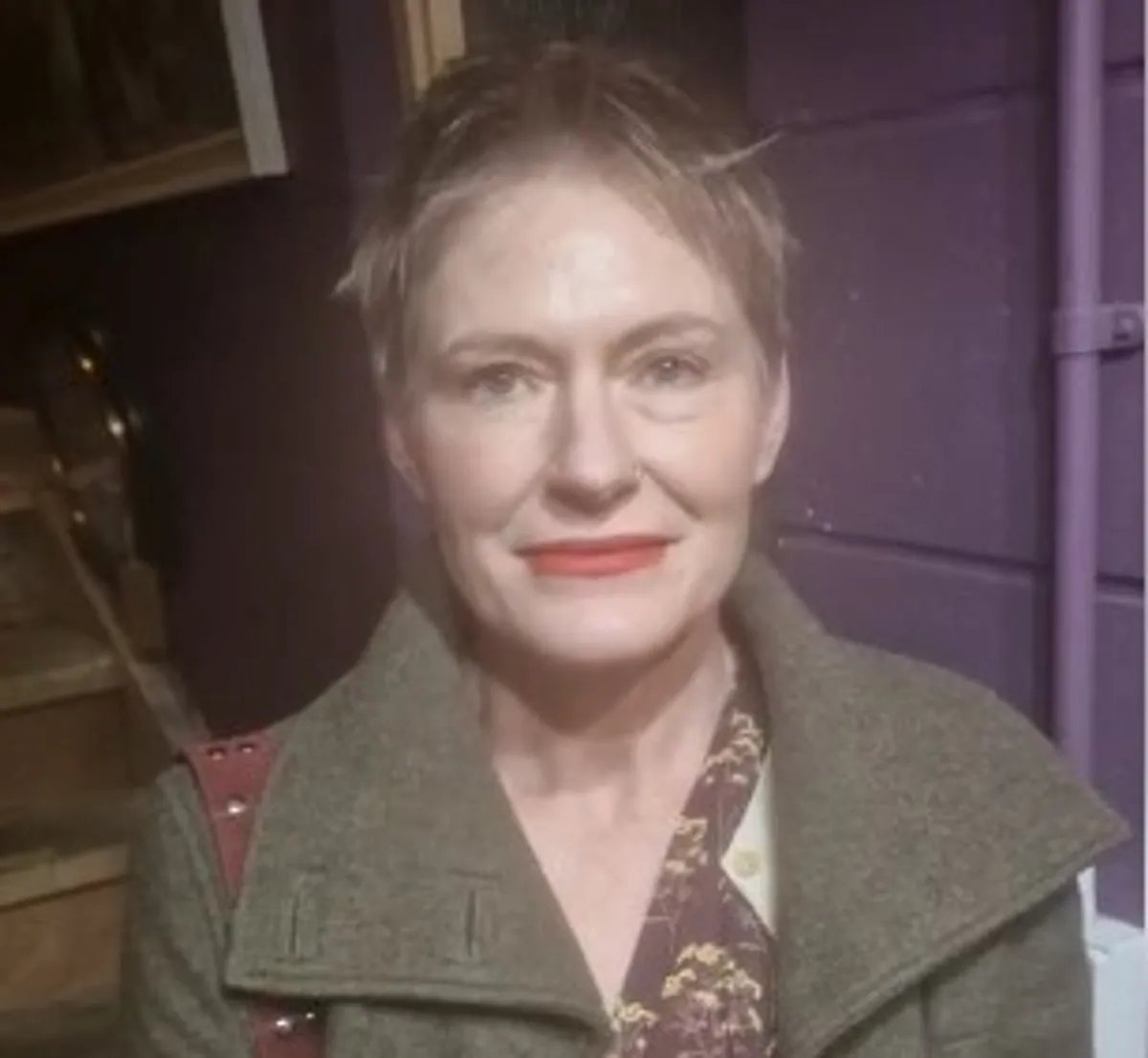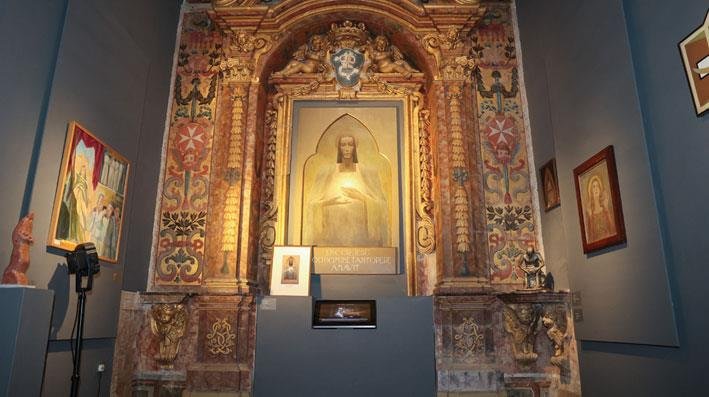Back in July, London-based VIV Arts – a new sales platform supporting artists and collectors in the experiential art sector – hosted a talk at Christie’s London HQ titled “Can you collect experiences?”
The platform’s co-founders, Carlota Dochao Naveira and Oliva Sartogo, presented the first artwork for sale on VIV Arts, Mycoforest by Berlin-based “hybrid” art collective Transmoderna. It was a trippy video accompanied by an electronic soundtrack that I watched on my laptop. To be honest, the “experience” was lost on me.
On Monday, though, the day before VIV Arts’ official launch, I was baptized into the experiential art sector by Naveira and Sartogo in the Romanesque Revival style Welsh Chapel in Soho. They invited me to a preview of Controlled Burn, an immersive installation by French Swiss artist Julian Charrière, and it was nothing short of biblical. It put “immersive experience” Outernet London, one of the capital’s most visited tourist attractions, to shame.
Watching the video projected onto a massive 13.5 by 24-foot screen alongside a booming soundtrack is truly an immersive experience. Dry ice poured into the dark space as Charrière propelled me through time and space, starting with the birth of the universe 13 billion years ago through to today’s industrial era. I initially thought the explosions, plumes of smoke, and rewound scenes of wrath were computer generated, but Naveira put me straight; they were filmed by two custom-built, first-person view drones fitted with 4K cameras.
The mind-blowing visuals aren’t just pyrotechnics, they’re a commentary on the state of the world. Charrière created the work to highlight our reliance on fossil fuels and to show that change is still possible before humanity is engulfed by Controlled Burn’s fire and fury.
Charrière told ARTnews that filming the work was difficult. “First, you have to conceive the fireworks in reverse so that when you play it backward, it still feels like a progression, with the fireworks appearing to implode,” he said. “This required a complex thought process to plan each shot carefully, envisioning how the entire sequence would unfold in reverse. Essentially, designing a firework display backward – starting with the end in mind – was both the beginning and the end of a very complicated process.”
The artist, who addresses ecological concern by filming in wild places including volcanos and radioactive sites, said Controlled Burn’s location posed the greatest challenge. The drones filmed inside the cooling tower of a coal power plant, as well as above an oil rig out at sea. “Flying the drones through the flashes and the light was probably something that hasn’t been done before might never happen again,” he added.
Look very closely and you’ll see sporadic, momentary images of primordial ferns and fluttering moths, which evolved during the carboniferous period 350 million years ago. The artist wants them to be viewed as “markers for how the agency of coal, oil, and tar has come to haunt our contemporary imagination.”
“Charrière’s ability to raise awareness on pressing ecological issues through experiential art aligns perfectly with VIV Arts’ mission,” Naveira and Sartogo (who were part of the founding team of Miami experiential art center Superblue) told ARTnews. “His work exemplifies how art can serve as a transformative tool for engagement and dialogue, which made him the ideal artist to partner with for our launch. For us, experiential artworks like this serve as a platform for deeper discussion. We believe Controlled Burn will evoke powerful emotional responses, as the experience connects viewers into both the beauty and the urgency of the environmental issues we face.”
The Welsh Chapel, built in 1888 and turned into a nightclub in 1982 after its life as a Presbyterian church, is a fitting venue for Controlled Burn’s epic visuals. Naveira and Sartogo said they were attracted to the building’s “raw unique architecture.” “The work itself deals with the evolution of life and energy sources, taking the viewer on a journey through deep time, and the chapel’s charged history – from a place of worship to a vibrant creative arts centre – adds layers of meaning to the experience,” they said.
A lot of experiential art is designed to be viewed using a headset, but for works that aren’t, location and atmosphere play a vital role in the experience. The collaboration between VIV Arts and Charrière will undoubtedly get people interested in the offbeat artform, which, perhaps surprisingly, has been around since the advent of installation art, “artist environments,” “happenings” – a term coined by Allan Kaprow in the late ’50s – and time-based performance.
VIV Arts’ mission is to put people at the center of artistic experiences, as opposed to being passive viewers of art. Controlled Burn does just that, and it’s well worth visiting on the periphery of Frieze London this week.







